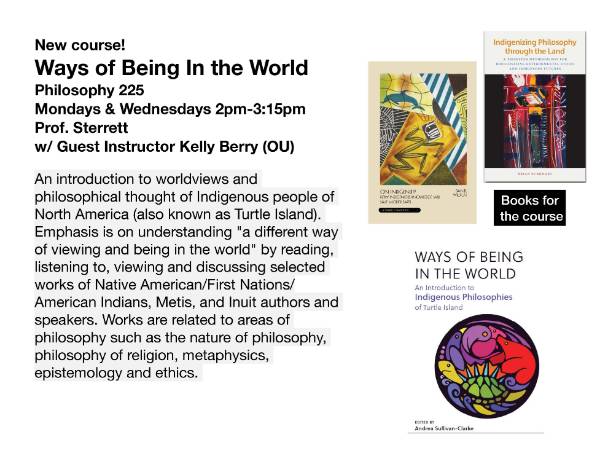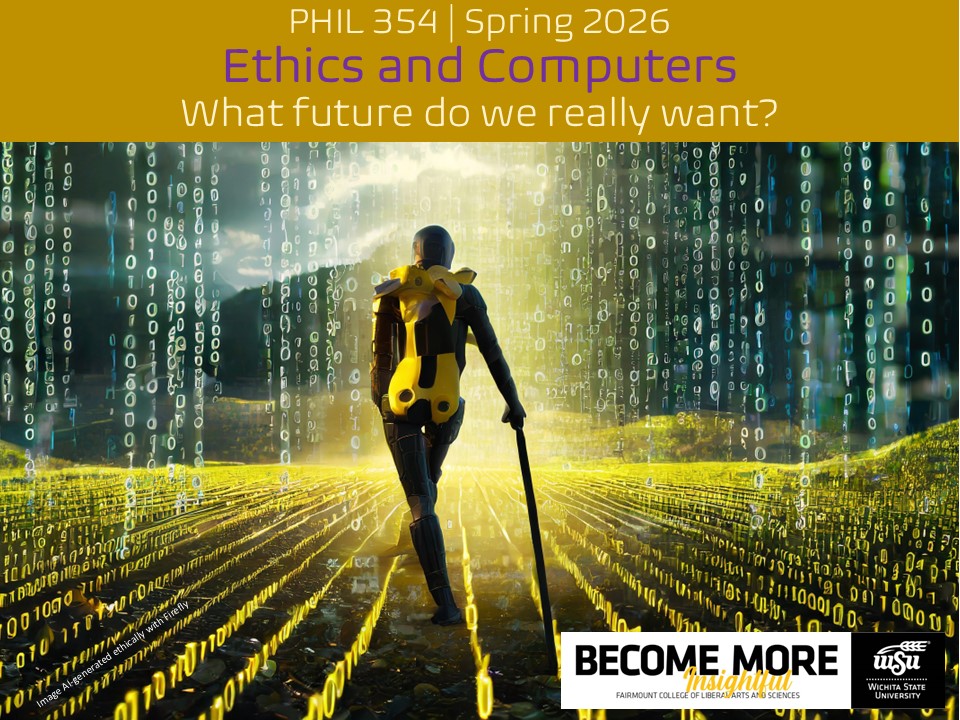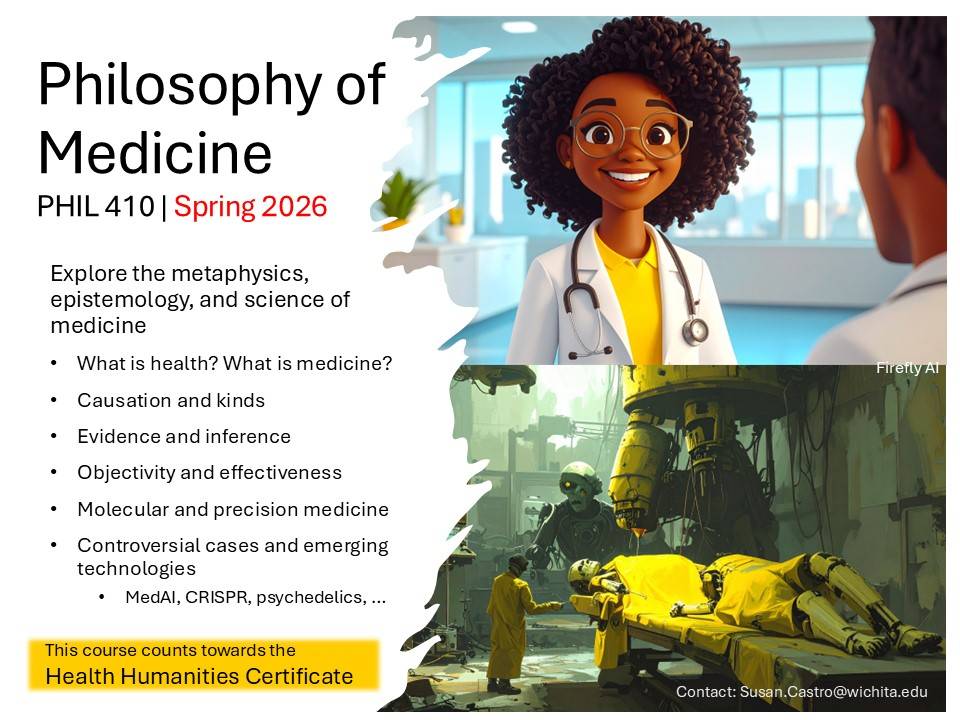Spring 2026 Special Offerings
LASI103. StepUp to Higher Education (1). 
This course is designed to promote reflection and support transition to college for students who belong to cohorts that may face particular challenges in stepping up to higher education. For example, such cohorts may include students who are first generation immigrants, veterans, Native, formerly incarcerated, or who have a disability. By developing their institutional knowledge about higher education in general and WSU in particular, by reflectively examining their life course and particular challenges in the context of the liberal arts and sciences disciplines, and by working with faculty and staff to facilitate the transition into college, students will prepare for entry into a degree program at WSU. This course is not a substitute for the First Year Seminar. This semester our focus is prospective students who have a criminal record.
Market-Based Tuition: $30
Tuesday evenings 5:30-7:30pm
First 8 weeks
WSU Old Town Campus, 213 N Mead
Instructors: Susan Castro (Philosophy), Brendan Clark (Psychology), Catherine Searle (Mathematics)
Enroll at https://slate.wichita.edu/register/LASI103
Introductory Courses Spring 2026
PHIL 100. Introduction to Philosophy (3).
Provides an introduction to philosophy and an opportunity for students to dive into the deepest questions of life. What is the purpose of life? Can two people disagree and both be correct? Is beauty only in the eye of the beholder? What is science, anyway? Are people obligated to obey the law? What makes someone the same person over time? Students explore a variety of philosophical questions to develop their communication and argumentation skills through discussion, analytic reading, academic writing and other assignments.
| CRN | Start Time | End Time | Days | Instructor | Method | Campus |
| 21043 | 1100 | 1215 | MW | Lu, Xiufen | Traditional Classroom Instruction (TCI) | Main Campus |
| 21044 | 1230 | 1345 | MW | Lu, Xiufen | Traditional Classroom Instruction (TCI) | Main Campus |
- Kansas Systemwide Transfer Course
- GEN ED Bucket 6
- Requirement for World Philosophy Concentration
PHIL 105. Critical Reasoning (3).
Helps students become better at reasoning. Focuses on different patterns of reasoning common in college-level studies and in everyday life. Some patterns are treated in concrete and content-specific ways, and others are treated in highly abstract ways. Students also learn to be critical by different kinds of standards. For example, students learn about how much precision to demand when reasoning about different kinds of topics, and how to evaluate considerations in terms of relevance. Ultimately, students learn how to strengthen their own capacities for reasoning and how to recognize and correct errors in their own thinking and in other people's reasoning.
| CRN | Start Time | End Time | Days | Instructor | Method | Campus |
| 21045 | 930 | 1045 | TR | Bondy, Patrick | Traditional Classroom Instruction (TCI) | Main Campus |
| 21041 | 1905 | 2145 | W | Fox, Christopher | Traditional Classroom Instruction (TCI) | Old Town Campus |
- Kansas Systemwide Transfer Course
- GEN ED Bucket 6
- Counts towards Foundation requirement for Analytic Reasoning Concentration
- Counts towards Analytic Reasoning requirement for Pre-Law Concentration
PHIL 125. Introductory Logic (3).
Introduces students to the use of formal logic as a tool for understanding and evaluating patterns of reasoning. Focuses on deductive validity, logical equivalence and proving soundness. The formal systems introduced in this course are topic-neutral—i.e., they apply to patterns of reasoning on any topic. These formal systems are particularly useful for future studies in areas such as computer science, law, engineering and philosophy.
| CRN | Start Time | End Time | Days | Instructor | Method | Campus |
| 21048 | 930 | 1045 | MW | Sager, Angela | Traditional Classroom Instruction (TCI) | Main Campus |
| 21047 | 1230 | 1345 | TR | Clark, Colby | Traditional Classroom Instruction (TCI) | Main Campus |
| 21046 | 1230 | 1345 | MW | Clark, Colby | Traditional Classroom Instruction (TCI) | Main Campus |
| 21042 | 1905 | 2145 | T | Fox, Christopher | Traditional Classroom Instruction (TCI) | Old Town Campus |
- GEN ED Bucket 6
- Counts towards Foundation requirement for Analytic Reasoning Concentration
- Counts towards Pre-Law Concentration
PHIL 225. Ways of Being in the World: An Introduction to Indigenous Philosophies of Turtle Island (3).
An introduction to worldviews and philosophical thought of Indigenous people of North America (also known as Turtle Island). Emphasis is on understanding "a different way of viewing and being in the world" by reading, listening to, viewing and discussing selected works of Native American/First Nations/American Indians, Metis, and Inuit authors and speakers. Works are related to areas of philosophy such as the nature of philosophy, philosophy of religion, metaphysics, epistemology and ethics.
New course! Course texts this semester include:

| CRN | Start Time | End Time | Days | Instructor | Method | Campus |
| 21049 | 1400 | 1515 | MW | Sterrett, Susan and special guest Instructor Kelly Berry (OU) | Traditional Classroom Instruction (TCI) | Main Campus |
Upper Division Courses Spring 2026
PHIL 306 Business Ethics (3).
A critical examination of representative moral issues that arise in the context of business. Focuses on topics such as the nature of professionalism, the social responsibility of business, regulation, employee rights and obligations, sexual harassment, economic justice, environmental impact, the limits of property rights, and conflicting international mores and practices. Prerequisite(s): PHIL 105 with a grade of C or better.
| CRN | Instructor | Method | Campus |
| 21050 | Pine, Anastasia | Online Asynchronous (OLA) | Online |
- GEN ED Buckets 6 and 7
- Counts towards Applied Ethics for Ethics Concentration
PHIL 325. Formal Logic (3).
Studies systems of formal logic including sentential and predicate logic. Emphasizes the uses of these systems in the analysis of arguments. Prerequisite(s): PHIL 125.
| CRN | Start Time | End Time | Days | Instructor | Method | Campus |
| 21051 | 1100 | 1215 | TR | Sager, Angela | Traditional Classroom Instruction (TCI) | Main Campus |
PHIL 327. Bioethics (3).
Examines ethical issues related to health care such as truth-telling to patients, confidentiality, euthanasia, abortion, prenatal obligations and distribution of health care.
| CRN | Start Time | End Time | Days | Instructor | Method | Campus |
| 21052 | 1100 | 1215 | TR | Fox, Christopher | Traditional Classroom Instruction (TCI) | Main Campus |
| 21054 | 1100 | 1215 | MW | Sager, Angela | Traditional Classroom Instruction (TCI) | Main Campus |
| 21053 | 1400 | 1515 | MW | Sager, Angela | Traditional Classroom Instruction (TCI) | Main Campus |
| 21055 | Clark, Colby | Online Asynchronous (OLA) | Online |
- GEN ED Buckets 6 and 7
- Counts towards Certificate in Health Humanities
- Counts towards Applied Ethics for Ethics Concentration
- Recommended for pre-Med and Health Professions students
PHIL 331. Ancient Greek Philosophy (3).
Examines the development of Greek philosophy in its major phases, including an exploration of the Milesian and Eleatic traditions, Pythagoras, the Atomists, the Pluralists, the Sophists, Socrates, Plato and Aristotle.
| CRN | Start Time | End Time | Days | Instructor | Method | Campus |
| 21056 | 930 | 1045 | MW | Bondy, Patrick | Traditional Classroom Instruction (TCI) | Main Campus |
- GEN ED Bucket 6
- Counts towards World Philosophy Concentration
PHIL 352. Contemporary Chinese Philosophy (3).
Surveys Chinese philosophy from the late 19th century to the present day. Covers major figures such as Sun Zhongshan (Sun Yat-sen) Chen Duxiu, Li Dazhao, Mao Zedong and Deng Xiaoping. Also covers major schools of thought such as the New Culture Movement, Nationalism, Communism, Socialism, Maoism and the post-Mao Economic Reform Movement. Prerequisite(s): PHIL 100 or 144.
| CRN | Start Time | End Time | Days | Instructor | Method | Campus |
| 21057 | 1230 | 1345 | TR | Lu, Xiufen | Traditional Classroom Instruction (TCI) | Main Campus |
- GEN ED Bucket 6
- Counts towards World Philosophy Concentration
- Counts towards Asian Studies Certificate
PHIL 354. Ethics and Computers (3).

| CRN | Start Time | End Time | Days | Instructor | Method | Campus |
| 21059 | 930 | 1045 | TR | Castro, Susan | Traditional Classroom Instruction (TCI) | Main Campus |
| 21058 | 1100 | 1215 | TR | Castro, Susan | Traditional Classroom Instruction (TCI) | Main Campus |
- GEN ED Buckets 6 and 7
- Satisfies School of Engineering ethics requirement
- Counts towards Ethics Concentration
PHIL 385. Engineering Ethics (3).
Examines representative ethical issues that arise in engineering. Topics include: professional responsibility and integrity, whistle-blowing, conflict of interest, ethical issues in engineering consulting and research, engineering and environmental issues, and engineering in a global context. Prerequisite(s): junior or senior standing.
| CRN | Start Time | End Time | Days | Instructor | Method | Campus |
| 21061 | 1230 | 1345 | TR | Hill, Scott | Traditional Classroom Instruction (TCI) | Main Campus |
| 21062 | 1230 | 1345 | MW | Hill, Scott | Traditional Classroom Instruction (TCI) | Main Campus |
| 21063 | 1400 | 1515 | TR | Hill, Scott | Traditional Classroom Instruction (TCI) | Main Campus |
| 21060 | Hill, Scott | Online Asynchronous (OLA) | Online |
- GEN ED Buckets 6 and 7
- Satisfies School of Engineering ethics requirement
- Counts towards Applied Ethics for Ethics Concentration
PHIL 410. Philosophy of Medicine (3).
Focuses on the metaphysics and epistemology of medicine. What medicine is and how people understand it have broad implications well beyond the practice of medicine by licensed professionals. In this course, students delve into these issues by investigating concepts of disease and disability, theories of medicine, the evidence based medicine pyramid vs expert consensus and clinical judgment, medical paradigms like P4 (predictive, personalized, preventive, participatory), current practice and prospects for AI in medicine, and more. Course includes historical, multicultural and social justice considerations.
Explore the metaphysics, epistemology, and science of medicine:
- What is health? What is medicine?
- Causation and kinds
- Evidence and inference
- Objectivity and effectiveness
- Molecular and precision medicine
- Controversial cases and emerging technologies
- MedAI, CRISPR, psychedelics, …

| CRN | Start Time | End Time | Days | Instructor | Method | Campus |
| 21064 | 1100 | 1215 | MW | Castro, Susan | Traditional Classroom Instruction (TCI) | Main Campus |
- GEN ED Buckets 6 and 7
- Counts towards Certificate in Health Humanities
PHIL 699. Directed Readings (3).
For the student interested in doing independent study and research in a special area of interest. Repeatable for credit. Prerequisite(s): departmental consent.
If you're a philosophy major who has a philosophical topic or project you'd like to pursue, please ocntact the instructor you'd like to work with or contact the department chair for a consultation as to which faculty might be appropriate.
Next steps



